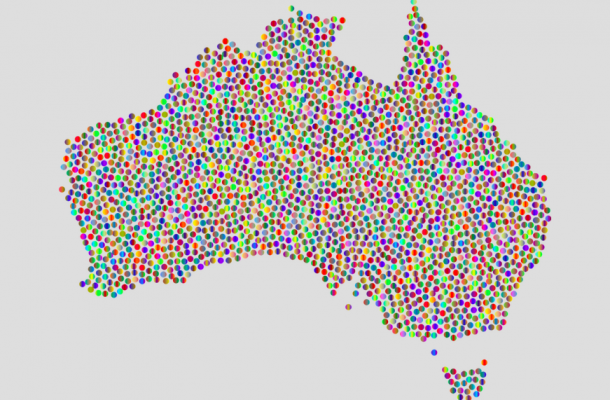Australia needs new positive narrative

Australia needs a new positive narrative and a reframing of its thinking for the future of the nation as it moves into 2022 and beyond and prepares for a Federal election, according to Victor Perton from the Centre for Optimism.
The Centre for Optimism has released a six-point plan for government and industry to adopt to boost their capabilities with a positive, uplifting mindset and optimistic leadership focused on collaboration, participation, and transparency.
Centre for Optimism founder Victor Perton said the current national narrative is framed in old behaviours – State-Federal squabbling over policy and service responsibility, hand-outs addressing market failures, institutional inertia, and short-run responses to crises.
“The World Economic Forum recently warned its members, including Australia, that the contemporary lack of optimism could create a vicious cycle of disillusionment and social unrest.
“With Australia coming out of COVID lockdowns, people’s lives have changed, and people expect their governments to learn the lessons too.
Mr Perton said Australians want positivity, not an aggressive fear-driven narrative.
“The reduced occupancy of the CBDs of Sydney and Melbourne are insoluble without trusted reasons and strategies to hope for better,” he said.
Victor Perton was a Victorian MP for 18 years, a former Victorian Government’s Commissioner to the Americas, and the Federal Government’s Senior Engagement Adviser for the Brisbane G20 Leaders’ Summit of Finance Ministers & Central Bank Governors.
“Australia can lead the world with a vision for a future that is built from an optimistic mindset which reframes challenges as opportunities rather than constraints,” he said. “It needs to bring people together on the journey which is aligned to new possibilities that are limited only by individual and collective imaginations. In short, a future where optimism is the fuel for a better normal.”
The six point-plan proposed to government and political leaders is:
1. Collaboration – as a primary goal – Federal Cabinet should create a National Collaboration Commission to exist alongside the ACCC and National Competition Council with the core purpose of pro-actively generating and encouraging collaborative projects across all segments of society and capitalising on and leveraging disparate capabilities, co-creating shareable and re-useable knowledge to address complex challenges.
2. Vision focus – Government Agencies should establish teams in each Department whose core purpose is to develop a vision, a long-run view of the future and invite public comment and participation in influencing policy formulation and implementation.
3. Active community engagement – Active community engagement on the development of policies and programs should be developed and implemented through the establishment of citizen juries, in which citizens can assess policies, or plans that are either prospective, or already in place. This approach could be used as part of the annual budget process, which invites feedback on prospective Government policy changes, which are tangible and practical and based on “on-the-ground” impact.
4. Reframe measurement (evaluation). Replace the preoccupation with GDP and introduce a new Optimism indicator which would add valuable insight in a departure from traditional metrics, thus reducing the focus on marketized goods and services and increasing attention on (a) volunteerism, (b) community engagement, (c) non-market work, (d) care for disadvantaged segments, (e) satisfaction with life, and (f) confident and optimistic outlooks.
5. Reframe economic development – Move from a focus on size of Government to broader based policies. This to include policies on care and health sectors, innovation, education, green capabilities, and supporting them through “needs clusters”. This would involve the establishment of more public-private partnerships and socially responsible funds, including social impact funding.
6. Broader institutional change – The inclusion of Opposition party members in the National Cabinet to promote bipartisanship and a collective long-term view on national issues which have been clearly delineated, such as those covering climate change and immigration. The Cabinet would have pre-determined flexibility to add issues or remove them from the agenda.
Mr. Perton Australia needs an optimistic lens on how progress is measured, a focus on boosting capabilities and industries with well-define plans and 10-year plus strategies and a commitment to developing institutions in accordance with a positive, uplifting mindset with emphasis on collaboration, participation and transparency in tackling any challenges.
“Australians want to remain connected. They are driven by wanting to engage in the policy agenda, to be able to speak up and be heard and they want more optimism and hope for the nation.
“This requires a collective change from all political and business leaders.”
HAVE YOUR SAY:
How does your business foster positive leadership?
Post a comment on First 5000 – Have your Say on LinkedIn today or email editor@first5000.com.au with your story.
Victor Perton a leadership adviser and advocate. He is the author of “The Case for Optimism: The Optimists’ Voices” and the Founder of the Australian Leadership Project. His life’s journey has included time as a barrister, parliamentarian, trade commissioner, entrepreneur and senior adviser to the Australian G20 Presidency.








